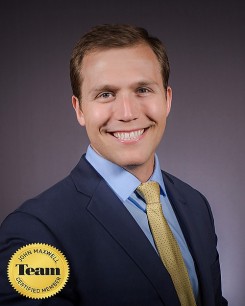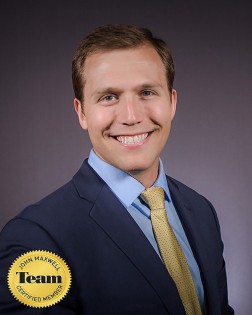
Why do you have life insurance? Is it because you have people that depend on you? Is it because you have debt that you don’t want others to inherit? Or is it because that’s what is normal and your parents told you to get it? Any of these three answers are acceptable. The real point of the question is to see if you actually know why you have insurance at all.
Recently, my partner Jamie challenged me that we need a better system to meet the insurance needs of our clients. Historically, it has never been a big part of my practice (ask me personally if you want to know why), but Jamie has pushed me to think about our clients and what is in their best interests. I’ve come to realize that we owe it to them to have a system built on education, a system that allows them to make informed decisions instead of directing them to an industry that is built to sell them a product. Boom. Gut check. Message received. As a side note here, always surround yourself with people better and smarter than you. I promise it’s more fun that way. Let’s talk shop and I’ll give you some personal thoughts along the way.
Let’s start with some definitions so we can cover the basics. For today, I’m going to break insurance into 2 categories: term life and cash value.
Term Insurance: You pay an insurance company to provide you with a death benefit of a fixed amount for a fixed period of time, i.e., $500,000 death benefit for a 30-year term. At the end of the term, if you are still kicking, nothing happens. The insurance goes away, you are no longer covered, and you stop paying premiums.
Cash Value: You pay an insurance company to provide you with a death benefit. The term is not fixed (in theory this could be until you pass away) and there is a component that builds cash value. Essentially this is a savings account that could pay you a fixed interest rate, or it might allow you to invest the balance, or it might be attached to something else that could contribute to its growth. If and when you decide you don’t want to pay for the death benefit any more you can take your cash value out and the growth will be taxable.
Now let’s talk about my opinion on insurance. In my experience, in most cases term life insurance is the best option. However, there are 3 cases in which cash value insurance is necessary.
1) You need permanent insurance. If you have children with special needs and they are likely to outlive you, then you may need some form of permanent insurance to protect them and provide for them after you pass away.
2) For estate protection. If your family estate is at risk of exceeding the Estate Tax Exemption Limit (2017 limit is $5,450,000) permanent life insurance can be used effectively to protect the estate.
3) Accumulation of assets. If you are a high-income earner and you have exhausted all other options for saving money in a tax efficient way. For example, you have maxed out your 401(k), maxed out non-deductible IRA/Backdoor Roth options, have a fully funded emergency fund, and you still need to save more of your income to get to a 15% savings rate, then cash value insurance could be a good option.
If you do not fall into one of these three categories then most likely term insurance is your best option. Unfortunately, the industry has decided that we can make a case for almost everyone to have cash value insurance, and so that’s what they do. It is important to note that cash value premiums are much higher than term. Yes, they have a savings component built in, but the cost of insurance is still there. Jamie and I have decided that we assume the opposite – we assume that we can meet your insurance needs with term insurance unless we can prove otherwise. So, step 1: go in with the assumption that term will work. Step 2) assess the need.
If I told you EVERYONE needs $500,000 of life insurance, what would be your response? “How do you know?” would be the best in my opinion. Every family has different needs. We factor in income, debts, future expenses, and a few other things to come up with your specific amount. It is not a one size fits all hat. So step 2 would be to determine the correct amount of coverage for your family and how long will you need that coverage. For the record, I believe uncovering these 2 factors will be a vital part of your full financial plan. You may not need life insurance past retirement age, but only if you have been preparing for that fact. I would recommend you think ahead and consider life insurance a part of your bigger financial picture.
In conclusion, you most likely need life insurance, and unless you have purchased your policy in the last 5 years, you need to review the insurance you have since the general cost of insurance has decreased recently. Think term first unless you fall into one of the previously mentioned categories or have another special circumstance. If you need cash value insurance, you are the exception, not the rule. Lastly, know why you have insurance, have a well-developed financial plan, and use insurance to protect your family and your assets, and buy it from someone you trust.





 Caleb Bagwell/Employee Education Specialist
Caleb Bagwell/Employee Education Specialist
 Caleb Bagwell/Employee Education Specialist
Caleb Bagwell/Employee Education Specialist Caleb Bagwell/Employee Education Specialist
Caleb Bagwell/Employee Education Specialist
 Caleb Bagwell/Employee Education Specialist
Caleb Bagwell/Employee Education Specialist
 Caleb Bagwell/Employee Education Specialist
Caleb Bagwell/Employee Education Specialist
 Caleb Bagwell/Employee Education Specialist
Caleb Bagwell/Employee Education Specialist